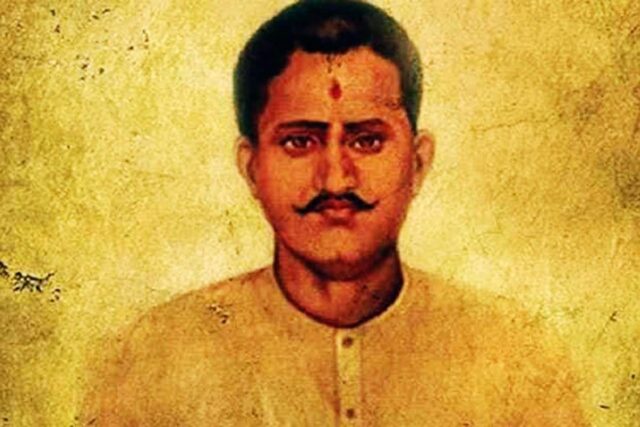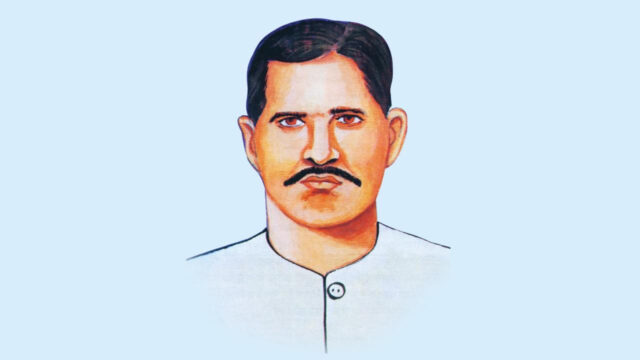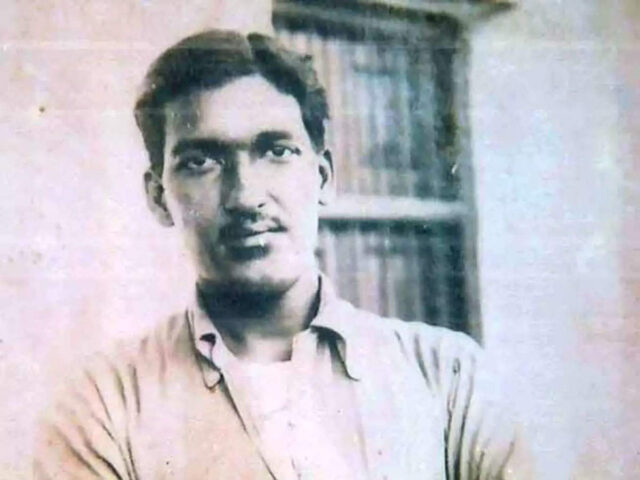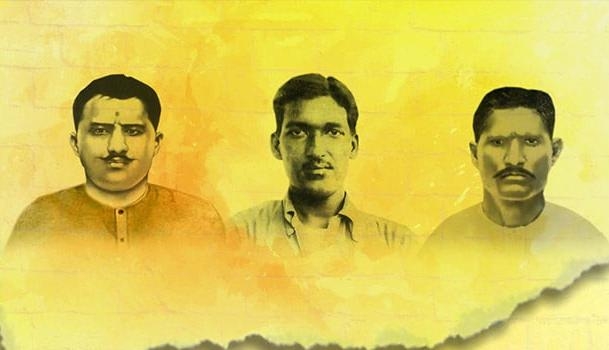Back in Time is ED’s newspaper-like column that reports the past as though it had happened just yesterday. It allows the reader to relive it several years later, on the date it occurred.
December 19, 1927, Uttar Pradesh: Freedom fighters Ram Prasad Bismil, Ashfaqullah Khan, and Thakur Roshan Singh were hanged separately in three different jails, Gorakhpur Jail, Faizabad Jail, and Naini Allahabad Jail, respectively, on the same day, for their participation in the Kakori Train Robbery case.

The Kakori Train Robbery Incident took place two years back, on the 9th of August. Reportedly, the people of the Hindustan Republican Association (HRA) had conspired to plunder a train that was carrying India’s treasury to the British states.
The Number 8 Down Train at the Kakori station had departed from Shahjahanpur and was headed to Lucknow. The members of HRA stopped the train at the Kakori station and looted around 4,600 cash and left everything else untouched. They then ran away to Lucknow. A passenger named Ahmad Ali, was also accidentally shot in the process and died.

Today, as the three young freedom fighters in three different jails of Uttarakhand were hanged, the country has still not processed the final verdict. The people have been protesting against the freedom fighters’ death sentence for several days, but it was all in vain.
Emerging out of one of the cells of Gorakhpur Jail, as Ram Prasad Bismil is being taken for execution, he addressed his nation and said, “My request to people of my country is that if they really want to pay homage to us then somehow establish Hindi-Muslim unity – this is our last will and this is how you should preserve our memory.” He was then hanged.
Ashfaqullah Khan’s last message for his countrymen from Faizabad Jail was, “Hindustani brothers, no matter what religion you belong to, please be one in the country’s work and do not fight.” After this, he too was hanged.
Thakur Roshan Singh had negligible contribution to the Kakori Train Robbery conspiracy but he was still being dragged to die by the British authorities. People saw him embrace death with a smile on his face. He wrote a letter to his friend inside the Naini Allahabad Jail, just before his execution. His letter read, “You don’t get angry for me, my death is not worth regret but it will be worth happiness.”
Also Read: Police Claim Multiple Challans Were Issued Against Anahita Pandole For Over-Speeding Since 2020
Just two days ago, Rajendranath Lahiri was hanged to death in Gonda District Jail. Among the 40 members of the HRA arrested by the British authorities for taking part in the Kakori Train Robbery conspiracy, only four were hanged: Rajendranath Lahiri, Thakur Roshan Singh, Ashfaqullah Khan, and Ram Prasad Bismil.
Chandrashekhar Azad, chief of the HRA, was the only person who managed to escape the arrests.

Today will always be marked in the history of India as the day three young revolutionary leaders gave their lives to free the nation from the barbaric hands of the British rulers.
Post Scriptum
The Hindustan Republican Association, or HRA, formed by a union of young men, was established as a cynical approach to Gandhi’s ideologies and schemes. They discarded the zestful preachings of “non-violence.” HRA’s manifesto, named Krantikari, was published two years ago, on the first day of January.
It said, “The immediate object of the revolutionary party in the domain of politics is to establish a federal Republic of the United States of India by an organized and armed revolution.” According to the manifesto, the insurgents were considered to be “neither terrorists nor anarchists… they do not want terrorism for terrorism’s sake although they may at times resort to this method as a very effective means of retaliation.”
However, a year after the four freedom fighters accused of the Kakori Train Robbery conspiracy were hanged to death, the HRA joined various other revolutionary associations rising in Bengal, Bihar, and Punjab.
They then came to be known as the Hindustan Socialist Republican Association (HSRA). After losing a large number of its renowned and strong leaders, the HRA disintegrated into several regional fragments.
The brutality imposed on Indian civilians during the colonial period by British officials was a bit extreme, especially the pronouncement of death sentences. The Kakori Incident had somewhat shaken the British administration.
They were shocked by the disobedience of the Indians. However, the execution of the three freedom fighters involved in the robbery was to put the people of India in their place, reminding them that the power was still in the hands of the British Raj.

The Kakori Train Robbery is a very symbolic incident in the pages of Indian history. People believe it to be yet another act of valor that was met with tragedy. Freedom fighters Ram Prasad Bismil, Ashfaqullah Khan, and Thakur Roshan Singh will always be some of the most prominent heroes of India.
Image Credits: Google Images
Feature image designed by Saudamini Seth
Sources: The Indian Express, India Today & Zee News
Find the blogger: @ekparna_p
This post is tagged under: history, Back in Time, Kakori Conspiracy, Kakori Train Robbery case, Independence, freedom fighters, struggle, British rule, Britishers, colonial India, Ram Prasad Bismil, Ashfaqulla Khan, Thakur Roshan Singh, martyrdom day, martyrs of India, Uttar Pradesh, death, hanged, death sentence, British authorities
Disclaimer: We do not hold any right, copyright over any of the images used, these have been taken from Google. In case of credits or removal, the owner may kindly mail us.
Other Recommendations:
ED VoxPop: We Ask Girls College Students About The Truth Of Girl Rivalry In Campus





























